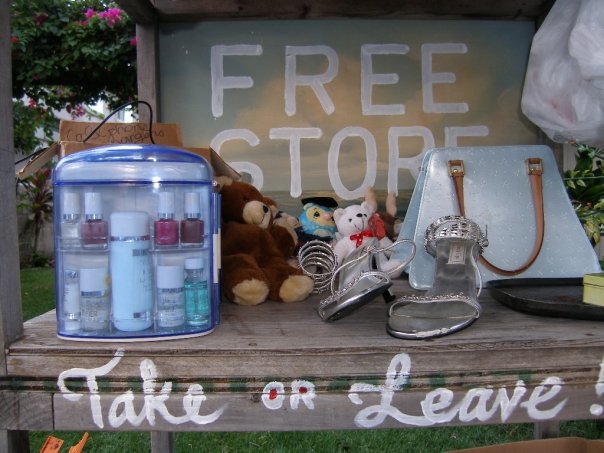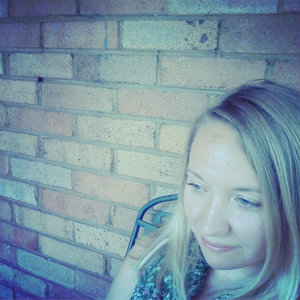Most of us are familiar with how a store works: goods are offered at a pre-determined price. When a need arises, you cough up the money and take the item home. When it breaks or becomes obsolete you either toss it in the trash or donate it to your local thrift store.
Thrift stores resell these goods for a much lower price, but they still operate within the constructs of a financial system that alienates those who 'have not'.
What would happen if we took money out of the equation all together?
A free store is a unique way for people to responsibly get rid of things they no longer need by putting them into the hands of others who can use them, free of charge, in a way that also builds community.
In the Pacific Northwest, Ben Aubin decided to take Portland's famous free boxes to the next level. In true reuse fashion, Aubin refurbished an old school bus, and set up the Portland Free Store–a permanent location where quality used goods could be matched with those who need or want them.
Determined to save free boxes from the wet weather and to bring the joy of free stuff to others, Aubin gathered a team of bike messengers to pick up Portland’s free fare and bring it to the store, which is open five days a week. Additionally, he fulfills wish lists. Anyone can fill out a wish list, in person or on the Free Store’s Web site, listing any items that they need, from disco balls to bike fenders (Vanguard).
Although Aubin's enterprise may be Portland's first free store, the creation of "100% off stores" got its start in the 1960's. All are based upon the simple idea that there is plenty of stuff to go around, so no one should have to go without.
Bonnie Nordvedt, who started working at the Baltimore Free Store when she was only 21, says the store is also about rethinking our addiction to shopping and spending.
Nordvedt, who is now the store director, points to their vision statement for more clairty:
"We envision communities forged through relationships based on mutual aid and cooperation. We use the distribution of free items as a catalyst for change and to demonstrate what can be done when communities work together."
A desire to move away from traditional consumer culture seems to be what draws many to start or donate to free stores.
For so long we've been told that our happiness lies in bigger, better, faster material posessions. But lean times show that these possessions are fleeting, and it is only the strength of community, and kindness of friends and neighbors that can see us through.
And just like free stores aren't just for those who have fallen on hard times, they aren't just for tangible items either.
The Really Really Free Market is a similar concept that focuses on community gatherings where skills, ideas, games, and friendship can be shared as well as clothing, household items and other goods.
More than the goods or services that are traded, a Really Really Free Market emphasizes the human interactions that take places during those transactions: a smile, a hug, a story, the exchange of a phone number.
When the market is over, participants should come away with a better understanding of those that share their community, as well as a filled need.
Interested in starting up a free store or market in your city? Check out the tips offered by Green American and the Really Really Free Market for finding a location, attracting volunteers, and gathering items to give away.
Inspired by Utne









